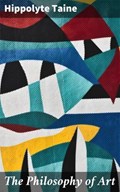In "The Philosophy of Art," Hippolyte Taine presents a profound exploration of the intersection between art, psychology, and culture. Drawing on a range of perspectives, Taine articulates his vision of art as a reflection of the collective consciousness of a society. His literary style is marked by a meticulous analytical approach that blends clarity with a rich, evocative prose, inviting readers into a deep engagement with his themes. Contextually, the book situates itself within the 19th-century philosophical discourse, reframing aesthetic appreciation through the lenses of empiricism and historical determinism, ultimately challenging the prevailing Romantic notions of artistic expression. Hippolyte Taine (1828'Äì1893) was a prominent French philosopher and critic, whose insights were significantly shaped by his background in the sciences and history. His earlier works in literary criticism laid the groundwork for his philosophical inquiries, reflecting his belief that art is not merely an individual creation but a product influenced by external factors, including environment, race, and historical context. This framework not only illuminates Taine's motivations but also underscores the relevance of his observations in our contemporary understanding of art. Readers interested in the theoretical foundations of art, historical context, or cultural criticism will find "The Philosophy of Art" an essential addition to their libraries. Taine'Äôs incisive arguments provide a fresh lens through which to analyze artistic endeavors, making this work a vital resource for students, scholars, and anyone genuinely curious about the origins and meanings of art in society.

